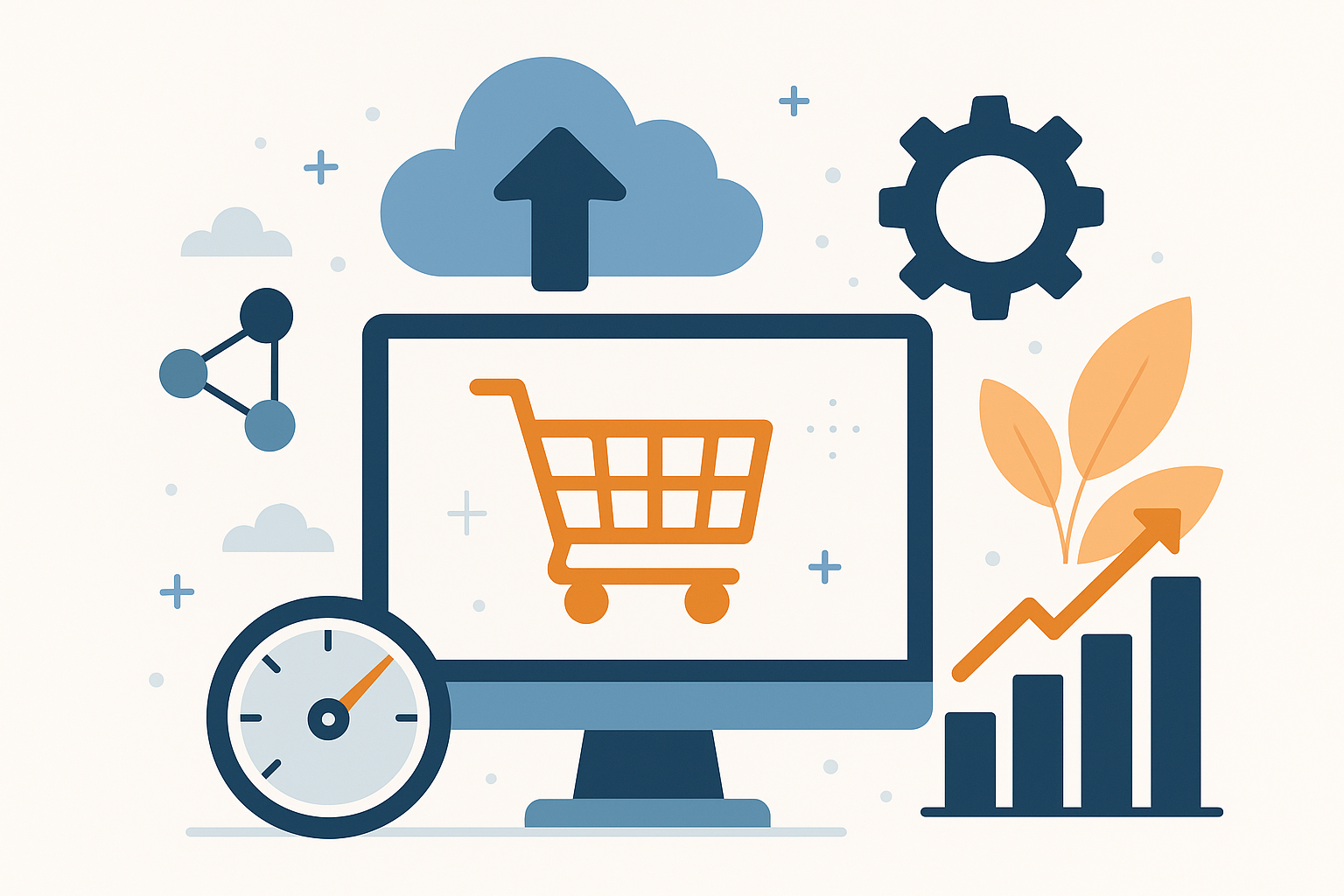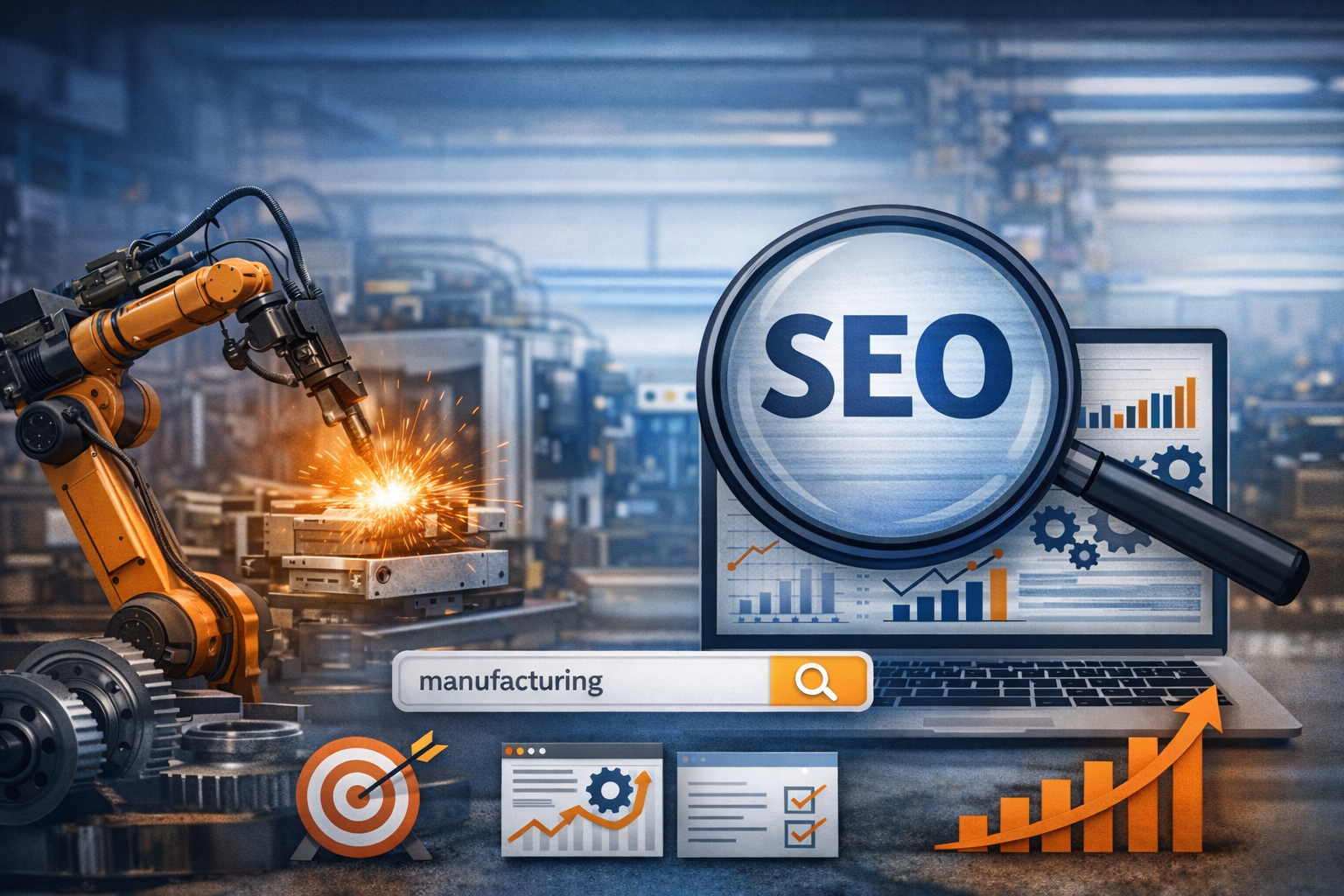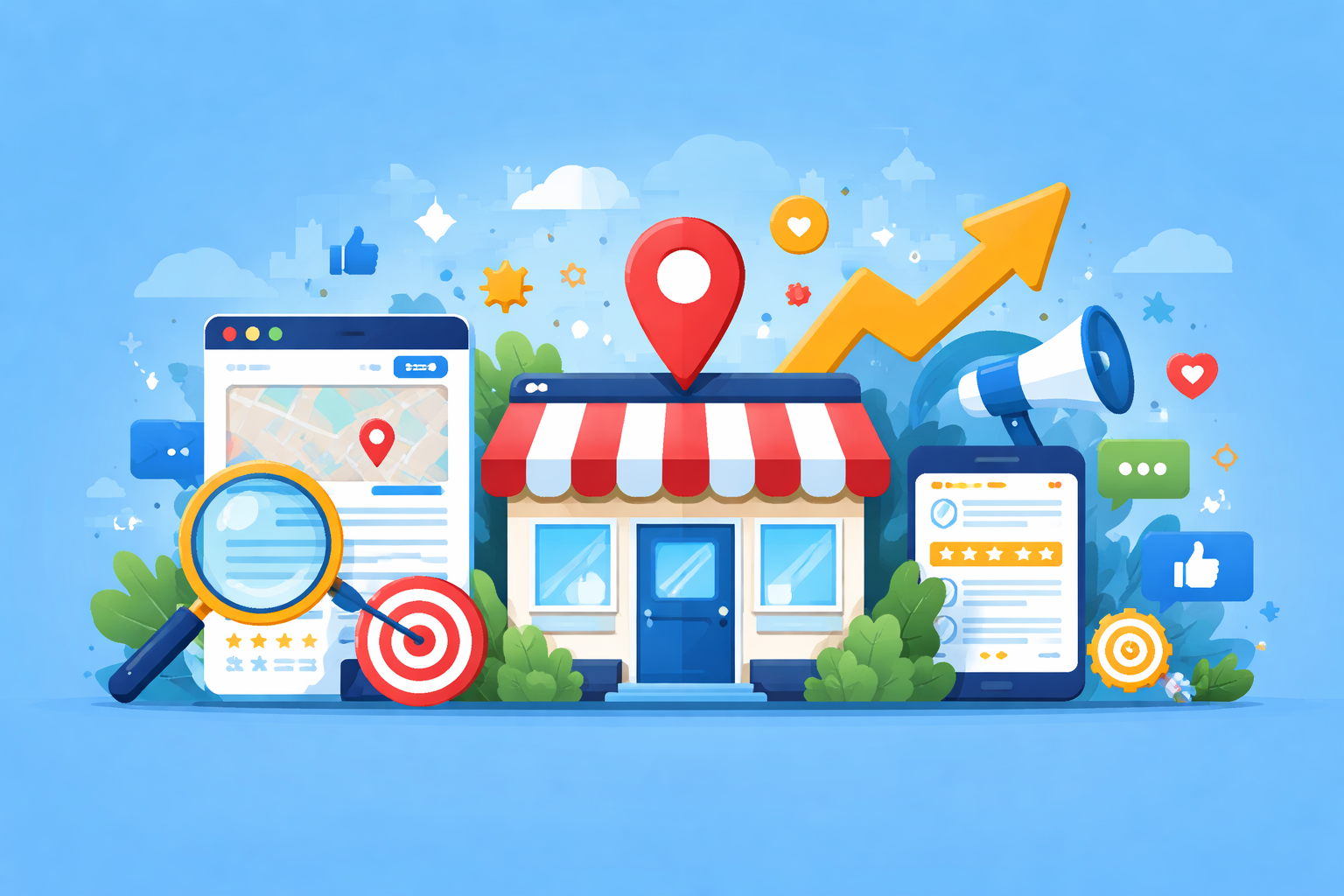Online retail has never been more competitive. Customers expect fast-loading websites, personalized recommendations, and smooth checkout processes. If your ecommerce platform can’t deliver, shoppers don’t wait—they move on to a competitor. Traditional IT infrastructure often struggles to keep up with these expectations, which is why advanced cloud tools have become a game-changer for retailers. They help businesses scale efficiently, improve performance, and provide a better overall experience for shoppers.
Enhancing Retail Operations with AWS Retail Solutions
Retailers of all sizes are increasingly turning to AWS retail solutions to improve online operations and stay competitive. Cloud platforms allow businesses to handle high traffic volumes during sales events, promotions, or holidays without crashes or slowdowns. They also integrate inventory management, analytics, and order processing into a single, easy-to-use system.
One of the biggest benefits of cloud adoption is cost efficiency. Maintaining physical servers, hiring IT teams, and dealing with system maintenance can be expensive and time-consuming. Cloud platforms allow retailers to pay only for the resources they use, freeing up budget for things like marketing campaigns, product development, or customer engagement initiatives.
Cloud solutions also make collaboration simpler. Marketing, sales, and operations teams can access the same data in real time, reducing mistakes and ensuring everyone is on the same page. Automation can handle repetitive tasks like inventory updates, order tracking, and reporting, allowing employees to focus on strategic initiatives instead of manual processes.
Integration is another major advantage. Payment gateways, CRM platforms, analytics tools, and even AI-powered personalization engines can all work together within the cloud environment. Retailers can provide product recommendations based on shopping behavior, predict inventory needs, and deliver tailored promotions—all without slowing down their systems.
Scalability is a key feature. During peak seasons or flash sales, retailers can quickly add resources to meet demand. When traffic drops, resources can scale back, optimizing costs without compromising performance. This flexibility ensures that customers always have a smooth experience, which is critical for loyalty and repeat business.
Improving Performance with DevOps Consulting in Boston
Implementing cloud tools is a great start, but for the best results, retailers often need professional guidance. DevOps consulting in Boston helps businesses bridge the gap between technology and operations, ensuring that cloud platforms are set up efficiently, secure, and optimized for performance.
DevOps consultants help retailers assess their current systems and develop a plan for cloud migration and optimization. They focus on practices like continuous integration and continuous deployment (CI/CD), which allow teams to release updates, fix bugs, and add features quickly without disrupting customer experience.
Security and compliance are also critical. Retailers manage sensitive customer data and must meet strict regulations like PCI DSS. DevOps consultants can design secure cloud architectures, implement monitoring systems, and recommend best practices for encryption and access management. This ensures data stays protected while operations run smoothly.
Another key benefit of DevOps consulting is performance monitoring. Consultants implement tools to track website speed, server load, and application performance in real time. Bottlenecks can be identified and resolved before they impact customers. Automated alerts help IT teams respond quickly to potential issues, minimizing downtime and keeping online stores reliable.
Automation is also a core part of DevOps. Tasks like software testing, deployment pipelines, and infrastructure management can be automated, freeing staff to focus on strategic projects. Retailers can launch new campaigns, implement AI-driven personalization, and scale systems faster than ever—all while keeping operations smooth.
By combining cloud tools with expert DevOps guidance, retailers can innovate confidently. AI recommendations, dynamic pricing, and predictive analytics become easier to deploy, improving customer experience and increasing sales without adding complexity to daily operations.
Enhancing Customer Experience with Cloud Optimization
Cloud solutions and DevOps practices don’t just improve backend operations—they have a direct impact on the customer experience. Faster websites, more reliable checkouts, and personalized shopping journeys keep customers engaged and coming back.
Real-time data helps retailers understand customer behavior and tailor offerings. For example, a shopper browsing for shoes might see personalized recommendations for complementary products like socks or accessories. Timely notifications about promotions, restocks, or abandoned carts encourage engagement and increase conversion rates.
Cloud platforms also support omnichannel retail experiences. Customers can check inventory online, buy in-store, or arrange delivery with accurate, real-time data. Pricing, promotions, and stock levels remain consistent across all channels, creating a seamless shopping journey.
Customer service also benefits. AI-powered chatbots and automated support tools can answer common questions instantly, freeing human staff to handle more complex issues. These improvements boost satisfaction, loyalty, and overall brand reputation.
Scalability and Flexibility for Growth
One of the biggest advantages of cloud tools is the ability to scale quickly. Retailers can handle spikes in traffic, expand product lines, or enter new markets without overhauling infrastructure. Cloud environments let businesses add or remove resources as needed, keeping performance steady while optimizing costs.
Flexibility extends to innovation. Retailers can test AI-driven marketing strategies, predictive analytics, and dynamic pricing without risking disruption to core operations. This agility allows businesses to adapt to new trends, changing customer preferences, or seasonal demands efficiently.
Automation paired with scalability also improves supply chain operations. Inventory management, order fulfillment, and demand forecasting can be streamlined, reducing errors and freeing staff to focus on higher-value tasks. This combination of efficiency and flexibility improves the bottom line and strengthens overall competitiveness.
Security and Compliance Advantages
Security is a major concern for retailers. Cloud platforms provide encryption, multi-factor authentication, monitoring, and automated backups, ensuring sensitive customer and business data remains protected.
Compliance is also simplified. Cloud tools offer built-in reporting, auditing, and monitoring features to meet regulatory requirements, reducing the burden on internal teams. Secure systems help build trust with customers, which is essential for retention and long-term growth.
By integrating performance optimization with security and compliance, retailers can run their online stores confidently, knowing both their data and their customers are protected.
The Future of Ecommerce with Cloud Tools
Cloud technology and DevOps practices are transforming ecommerce. Retailers who adopt AWS retail solutions and leverage professional guidance through DevOps consulting in Boston gain flexibility, performance, and resilience.
These tools allow businesses to scale operations, innovate faster, and deliver personalized, reliable experiences that customers expect. They also reduce operational costs, improve collaboration, and enable retailers to respond to market changes quickly.
The future of ecommerce will favor businesses that embrace cloud platforms strategically. By combining advanced technology, expert guidance, and customer-focused strategies, retailers can build high-performing online stores ready to meet evolving demands and compete in a rapidly changing market.
Published: October 27, 2025





